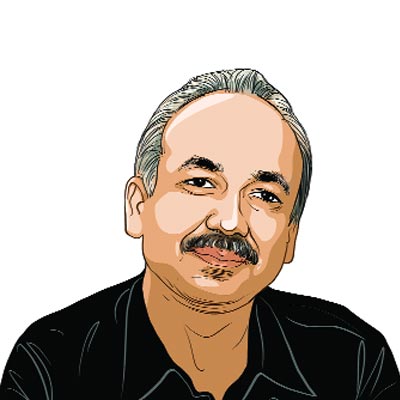Opinion Next Door Nepal: What ails Nepal
India and China differ on the meaning of instability in the country.

 Pushpa Kamal Dahal ‘Prachanda’ (Source: File/Reuters)
Pushpa Kamal Dahal ‘Prachanda’ (Source: File/Reuters)
Prime minister Pushpa Kamal Dahal who, also heads the Communist Party of Nepal (Maoist-Centre) said last week, in a parliamentary forum, that secularism, federalism and republicanism, the three major “achievements” of the decade-long Maoist insurgency and mass movement would vanish, and a situation like the one in December 1960 could repeat if elections to local bodies and provincial and federal parliaments were not held within a year. In December 1960, King Mahendra dismissed the first-ever elected parliament with the help of the army, banned political parties and took over all executive powers. Parliamentary democracy was restored in 1990, following a mass movement. Another radical upheaval in 2006 led to Nepal’s transition to a secular federal republic from a unitary Hindu kingdom.
The constitution that was promulgated in September 2015 ignored the reservations of a section of the Madhesi groups within the constituent assembly and vast sections of people outside the assembly. The dissenters felt that the concepts of secularism, federalism and republicanism were being imposed on people without a debate. But with the monarchy gone, why was Dahal fearing a repeat of the royal coup of 1960?
With the Nepali actors confused, there seems to be a clash of perceptions between the country’s two immediate neighbours — India and China — over what the country might go through if its riven by political instability. However, Nepal’s two giant neighbours agree that such a situation would be detrimental to the security interests of both.
Nepal’s constitution does face a crisis; not so much from its opponents but from its over- zealous “architects” who ignored every warning against an inadequate and incomplete constitution being promulgated in haste. Their argument was that “regressive forces and the king will stage a comeback if the constitution is not delivered now”. The constitution mandates three elections by January-end. But so far, the boundaries and numbers of the local bodies have not even been finalised. The boundaries of the proposed seven provinces have also not been finalised and the tentative boundaries that have been dawn up have led to violent conflicts in many places.
“Ideally, I would want to have local bodies elections over latest by early June,” Dahal insisted. However, with no electoral laws in place so far, the borders of the local bodies and provinces not yet defined, and with key political parties not coming together, Nepal’s constitution is going to face the worst crisis. But it’s anybody guess if the prime minister will have his way once again by injecting the fear of the return of the dictator in the mind of the people. India’s ambassador Ranjit Rae who has been actively lobbying in favour of some of the demands of Madhesi groups said on Wednesday that India “has never and will never” interfere in Nepal’s internal affairs. His remarks — barely two weeks before retirement — go against the general perception in Nepal, that “India not only does interfere, but tries to micro-manage” matters here.
It will be a Herculean task but also a big opportunity for Rae’s successor to change the Nepali perception. Rae became more unpopular than most of his predecessors as the Raxaul-Birgunj border blockade, that stopped more than 70 per cent supplies of essential items from India, soon after the promulgation of the constitution occurred during his tenure.
China, unlike in the past, is open and vocal in sharing its perception about what ails Nepal, and how an unstable Nepal impacts China. In fact, China has conveyed its reservations on the three achievements that Dahal boasts of — federalism, secularism and republicanism — to Nepal’ s political leaders through “appropriate channels”. But the Chinese reservations were out in the open when Chinese experts shared their views during a two-day China-Nepal think tank conference in Kathmandu. “NGOs are trying to create disturbances along the Nepal-China and Nepal-India borders. The European Union is trying to increase its influence in Nepal, with an eye on China, through these NGOs. Nepal’s political actors, after the country became a republic, are tilting towards India,” said Li Tao executive director of the Institute of South Asian Studies of the Sichuan University.
China believes Nepal needs to be treated as a “safety valve” for entire Asia, and not merely a “bridge” between the two big neighbours. The message that the Chinese team wanted to give was clear: That China will enhance its presence and activities in Nepal in pursuit of bilateral interest as well as to counter India’s “undue concerns”. China also indicated that it will oppose the “rise of Christianity that works in the interests of US and EU and has often engineered political instability”. China has also been emphasising that the One Belt One Road (OBOR) project is vital for Nepal’s prosperity as 184 out of 312 roads connecting Tibet with South Asia pass through Nepal.
However, Dahal’s fear of history repeating itself, shared by most political actors in Nepal, does not conform to India’s wish for stability and China’s determination to remove the obstacles it sees in the way of its friendship with Nepal. China has been explicit that it wishes Nepal stability without interfering in its affairs. But what will Nepal face when the two giants clash within its boundaries?





